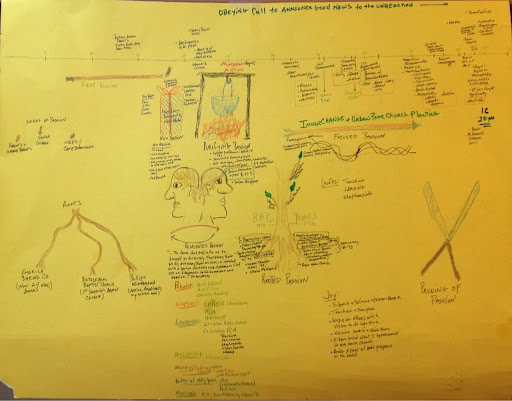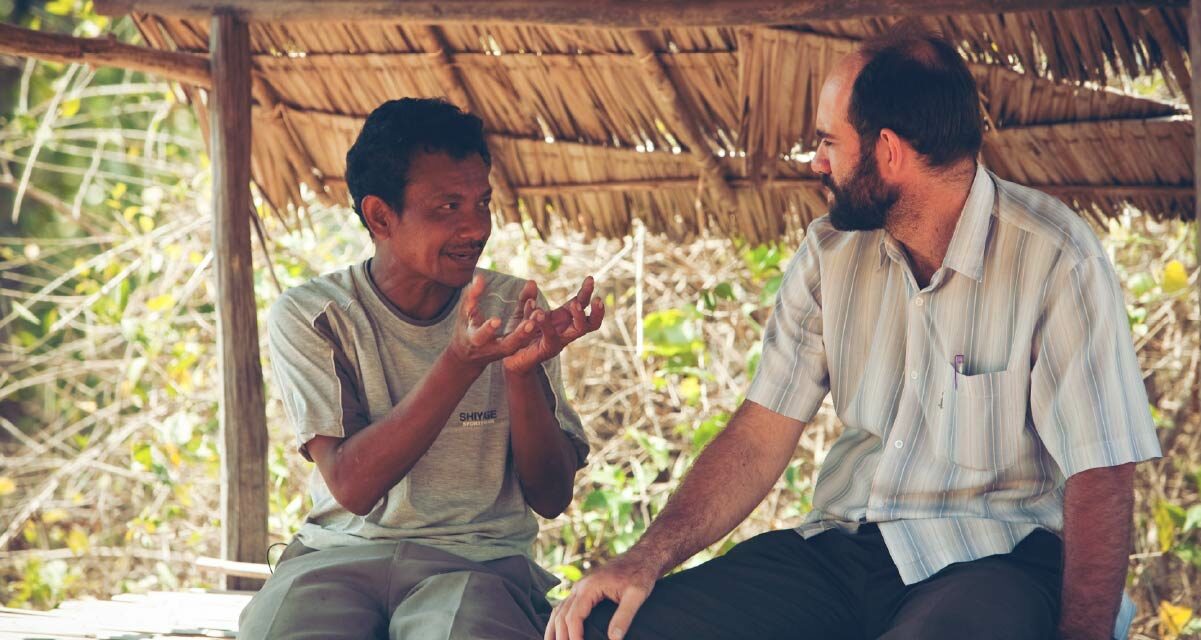And you shall remember the whole way that the LORD your God has led you these forty years in the wilderness, that he might humble you, testing you to know what was in your heart, whether you would keep his commandments or not. And he humbled you and let you hunger and fed you with manna, which you did not know, nor did your fathers know, that he might make you know that man does not live by bread alone, but man lives by every word that comes from the mouth of the LORD. (Deuteronomy 8:2–3)
The Exodus journey brought Israel to the edge of the land for which they had longed, and of which God had promised when leading them out of Egypt. It had been 40 years of discipline wandering in the wilderness, and now they were poised to take possession of their inheritance. Moses stood before the people to remind them again of the covenant God had made with them – the condition under which they would remain in the land. Near the beginning of Moses’s recitation, Israel is commanded to remember. Not just to remember, but to remember God and the way he had sovereignly led them as a people. Not just his leading, but his faithfulness in leading Israel through a seemingly desolate wilderness to where they were that day. This wandering in the wilderness may have seemed aimless but it was not purposeless. God’s leading in the wilderness was meant to test them in order to reveal what was in their hearts. Would they trust him? Would they trust his word to them? Would they learn to live on that word as they lived on bread? So, they were told to look back and remember. They were to recall the significant ups and downs of the journey and to remember how God had been forming them, disciplining them, and refining them over the period of their journeying. Why? Because God is faithful, and he does what he says he will do. His love is a faithful love and his discipline is always for the holiness of his people. The remembrance of God’s past faithfulness would be a way of instilling confidence and hope to trust in his abundant grace for their future need.
In InnerCHANGE we find that remembering is a powerful tool in our own formation as well. One way we do this is through the use of this timeline exercise. God is sovereign over our lives. He has predestined us to be conformed to the image of his son (Rom. 8:29), therefore, if we have eyes to see, we can begin to recognize how he is forming us for his overall purposes in our lives. His kindness is meant to lead us to repentance (Rom. 2:4), his discipline demonstrates we are his legitimate children who are to reflect our father’s holiness (Heb. 12:7-10), and his joy is intended for us to share in all its fullness.
Creating Your Timeline
- First, read the article by Robert Clinton on “A Sovereign Mindset”
- Creating your timeline: There are a few ways that you can do this. The steps provided will be the same in both cases, but how you visualize your life may be different.
- Linearly. The process we’ve included is a post-it note method that is more linear in approach.
- Through art and symbols in whatever way makes the most sense to you. People have used spirals made up of pictures, or as a drawn picture of a book, or as a mosaic, etc.
- A combination of symbols or art laid out in a linear fashion. Below is an example of this.

Here are the directions for an artistic/symbol (“pomo”) timeline. Below is a link to a post-it note linear timeline.
Timeline Exercise (“pomo” style)
Basic directions: phase I
Before Retreat:
- make a list of significant people (both positive and negative), events (both positive and negative), and significant ministry experiences that have shaped your life (in no particular order!). Begin to think of how you would draw out the shape or path of your life including these people, events and ministry experiences.
- with your list in front of you, begin to draw out the shape or path of your life on poster board
- include each of the people and events on your list either through word or symbol
During Retreat:
- Using your “time line” share with your team the story of your life
- discover, along with your team, any larger patterns or recurring events in your story. The following are examples of what to look for in terms of themes or patterns:
- Spiritual gifts or talents (ie. I seem to be practicing hospitality a lot)
- Certain types of roles (ie. I am frequently in a supervisory role)
- Types of people God keeps bringing into your life
- A reoccurring trial or test
- Unusual circumstances (ie. I was born in another country)
- Family background that effects you still (my father abused me)
- Reoccurring successes
- Reoccurring failures
- dialog with the team, and then journal about any ways God may shape your future based on your past.
Phase II: Revisiting Timeline after 9 months
- Take the list of “process items” and match some of them with things in your story (write this down on a separate sheet of paper).
- Come up with a color or symbol for each type of process item and add it to your time-line.
- Dialog with your team about how your life looks through the lens of 9 months of apprenticeship.
- Journal about where and how God may direct your future based on your revised time-line
| Process items | Definitions | Examples |
| Integrity check (ic): integrity is the heart of character. | A test that God uses to evaluate intentions in order to shape character. This check is a springboard to expanded sphere of influence | Joseph tested by Potiphers wife; Daniel tested regarding food he would eat. |
| Obedience check (oc): A leader must learn obedience in order to influence others toward obedience | A leader learns to recognize, understand, and obey God’s voice. The leader encounters this early in development and repeatedly throughout life. | Abraham being asked to sacrifice his son Isaac |
| Word check (wc): A leader must be able to receive truth from God | Tests a leader’s ability to understand or receive a word from God personally and then allow God to work it out in their life. Frequently combined with integrity checks and obedience checks | Samuel first hearing the voice of God and willingly telling Eli what God had said (1 Sam. 3) |
| Ministry task (mt) | An assignment from God that tests a person’s faithfulness and obedience to use their gifts in a task that has a beginning and ending, accountability, and evaluation. | Barnabas’s trip to Antioch (Acts 11) to evaluate the work there. |
| Ministry challenge (mc) | Focuses on the leader’s acceptance of their ministry. Specifically the means through which a leader or potential leader is prompted by God to sense the need for and accept a new assignment | Barnabas’s challenge to Paul to join him in Antioch. |
| Ministry skills (ms) | The acquisition of one or more identifiable skills that help a leader accomplish a ministry assignment. | |
| Training experience (te) | An experience that gives some form of affirmation, assuring the leader that God will continue to use them in the future. Characterized by identifiable progress in terms of sphere of influence, leadership responsibility, or self-confidence. | |
| Giftedness discovery (gd) | Any significant advance in the discovery of spiritual gifts and their use along with the event, person, or reflection that brought about the discovery. | Barnabas as an encourager and gift of apostleship |
| Authority insights (ai) | This refers to those positive and negative ministry lessons that teach about the use of spiritual authority. These are lessons on submission to authority, on authority structures, on authenticity of power bases, on authority conflict, how to exercise authority. | The switching of authority from Barnabas to Paul. |
| Relational insights (ri) | Those instances in ministry in which a leader learns either positive or negative lessons about relating to other Christians or non-Christians in the course of ministry decisions. | A negative example is Barnabas’s and Paul’s conflict over John Mark (Acts 15:36-39) |
| Leadership Backlash (Lb) | This refers to the negative reactions of followers, other leaders within the group, and Christians outside the group to a course of action taken by a leader once ramifications develop from his decisions. | Moses and Israelites in the desert. Several backlashes. |
Here’s a PDF of a post-it note Trac timeline that you may also find informative.
Download PDF



